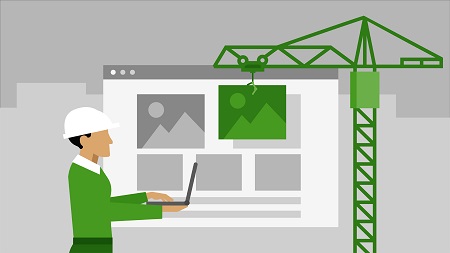
English | MP4 | AVC 1280×720 | AAC 48KHz 2ch | 2h 16m | 2.55 GB
Once you eliminate the trends and terminology, web design is about one thing and one thing only: getting your message across to an online audience. This course offers a 10,000-foot view of the web design process, to help ensure you never lose sight of your users. Morten Rand-Hendriksen takes you on a journey from initial consultation and discovery through content strategy and UX considerations, to development, content creation, design, testing, and launch. By the end, you’ll understand the different players and phases and how they fit together in a web design approach focused on meaningful communication and a great user experience.
Topics include:
- Understanding what your users care about
- Creating user personas
- Creating content priority hierarchies
- Testing wireframes and interaction patterns
- Establishing a three-track build process
- Incorporating accessibility principles
- Using content blocks
- Testing and revising your web design
- Optimizing for social media and SEO
- Launching your web design
- Getting feedback from users
Table of Contents
1 Welcome
2 What is this course about, and who is it for
3 What do we mean when we say ‘web design’
4 Creating informational user experiences
5 A guide to the web design process
6 The only thing that matters
7 All the things the end user does not care about
8 Asking what the web can do for you
9 Roles and responsibilities
10 Establishing baseline documentation
11 Version control
12 Content strategy
13 Establishing user personas
14 Content audit
15 Content modeling
16 Creating content priority hierarchies
17 Information architecture
18 Wireframing
19 Taking it to the streets
20 Card-sorting exercise
21 Testing wireframes and interaction patterns
22 Establishing a three-track build process
23 Creating a living style guide
24 Core content-model development
25 Baseline development priorities
26 Creating a content-only build for accessibility
27 Responsive web design as a process
28 Designing in the browser
29 Using content blocks
30 Interactive elements and progressive enhancement
31 Art direction – Responsive images and graphics
32 Taking it to the streets again
33 Accessibility testing
34 Break and edge-case testing
35 End-user testing
36 Optimization priorities
37 Optimizing for user experience
38 Optimizing for social media sharing
39 Optimizing for SEO
40 Analytics integration
41 Prelaunch checklist
42 Soft and hard launch
43 Create a feedback loop for issues and resolutions
44 Post-launch user testing
45 The web evolves–so should your site
46 Continue your path of learning
Resolve the captcha to access the links!